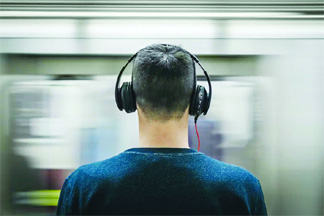
The widespread use of earphones and headphones, especially among younger generations, is becoming a serious public health concern. With many young individuals frequently exposed to loud music for extended periods, the risk of developing noise-induced hearing disorders is on the rise. What was once considered an issue for older populations has now begun affecting people in their teens and twenties, with long-term consequences that are often irreversible. Noise-induced hearing loss (NIHL) occurs when the hair cells within the cochlea, a structure in the inner ear, are damaged by excessive sound.
According to the World Health Organisation (WHO), 1.1 billion teenagers and young adults worldwide are at risk of hearing loss due to unsafe listening practices. This includes exposure to loud music through earphones, especially when used for prolonged periods at high volumes.
“Short-term issues caused by using earphones include excessive earwax build-up that can extend deep into the ear canal, leading to infections and earaches. The tight fit of earphones may also cause discomfort, pain, and itching. In more acute cases, loud music can result in a Temporary Threshold Shift, causing temporary hearing loss,” said Dr Amit Kumar Sharma, HOD & Senior Consultant, ENT, Cochlear Implant & Voice Disorders, SHALBY Sanar International Hospitals, Gurugram.
One of the most significant contributors to NIHL in younger populations is the volume at which music is played.
Studies have shown that many young people listen to music at volumes exceeding 85 decibels (dB), the threshold at which damage to hearing can occur. Regular exposure to sound levels above 85 dB can lead to permanent hearing damage.
Alarmingly, some earphones can produce sounds as loud as 100 to 110 dB, levels that can cause hearing damage in just a few minutes of exposure.
Dr Sharma said that the long-term use of earphones, especially at high volumes, can result in permanent hearing impairment.
“Patients may also experience tinnitus, a constant ringing or buzzing in the ears, and hyperacusis, an increased sensitivity to everyday sounds. Poor earphone hygiene increases the risk of fungal ear infections, such as otomycosis. Prolonged listening can also cause hearing fatigue, reducing overall hearing sensitivity,” the expert said.





Be the first to comment